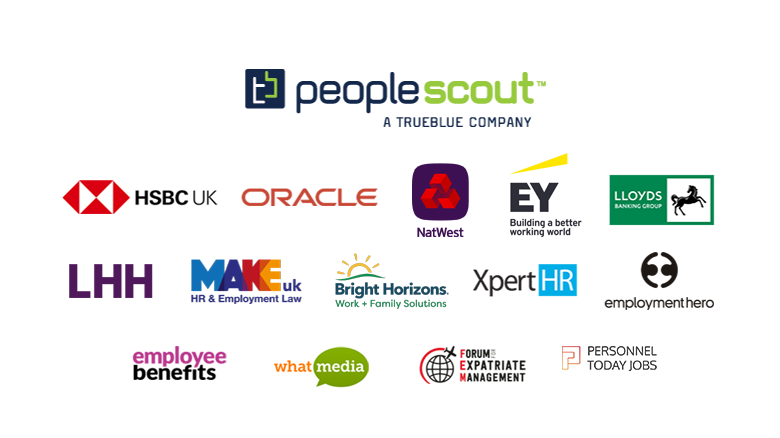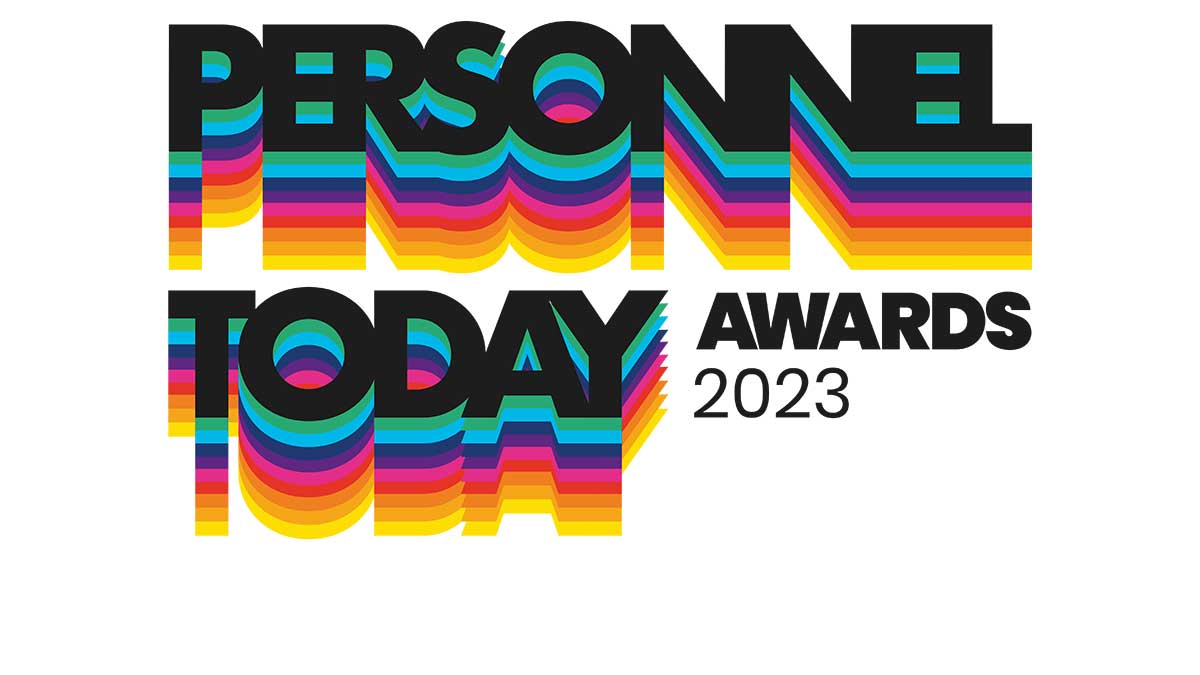Law firm Brown Jacobson took the trophy for the Equality, Diversity and Inclusion Award at the 2023 Personnel Today Awards for its schools outreach programme in social mobility ‘cold spots’.
Our judges loved the fact the firm took a second look at applications from candidates from lower socio-economic backgrounds, and the terrific results from using contextualised recruitment. We look at its entry here, plus showcase the work of our other finalists.
WINNER
Browne Jacobson
Law firm Browne Jacobson wants to ensure everyone has equal access to the legal profession and the ability to progress within it, but in June 2016 only 7% of its junior lawyers were from an ethnic minority background and 96% of work experience placements were secured by those with connections to the firm. It knew this needed to change if it wanted to serve the needs of its clients.
It now has a highly-focused outreach programme which includes mentoring school pupils in social mobility ‘cold spots’. Its recruitment processes have been improved and it has introduced anonymised applications, removed minimum grade requirements, introduced a contextualised recruitment system, and implemented a ‘second look’ at candidates from lower socio-economic backgrounds.
In 2022 it ran an interactive online work experience programme for aspiring young lawyers, and it offered 80 fully paid internships via its FAIRE initiative for students most in need of the opportunity. Since 2020 its FAIRE events have attracted 23,500+ students from 2,000+ schools, and its FAIRE virtual insight event in 2022 was the largest legal virtual work experience event in the UK, with 3300+ attendees taking part. An online careers guidance session for parents was also held and attended by 1,370 people. Ten apprentices have been hired, all from lower socio-economic backgrounds.
Almost half of training offers are now made to candidates previously ineligible to apply because of their grades. Its ethnic minority junior lawyer intake has grown to 45% and in 2022 it had 13 mentees on its Black lawyers mentoring programme. In 2022 it was ranked the UK’s top employer on the Social Mobility Foundation’s employer index for the second year running.
RUNNNERS-UP
Aster Group
Personnel Today Awards
All our 2023 winners revealed
View the 2023 photo gallery
The Personnel Today Awards 2024 open for entries around Easter
Sign up to keep updated
Housing organisation Aster strives to create a workplace where everyone feels safe, secure and supported. It has a clear set of values and behaviours, known as The Aster Way, that demonstrate the role its people have in achieving this, as well as a set of diversity and inclusion principles and a colleague-led inclusion steering group to support the leadership team to drive its D&I strategy.
Its LGBTQ+ Network has played an important role in developing its ‘transitioning in the workplace’ guidance, which is there to support leaders and employees. Other groups that have made a valuable contribution to inclusivity at Aster include its Hot Topic Menopause group, which won best support group at the Menopause-Friendly Employer Awards, and its Disability Confident Network, which helped it achieve Disability Confident Level 3 Leader status.
Partnering with specialists Lexxic, Aster ran neurodiversity and leader training programmes and created a Neurodiversity in the Workplace awareness session. A Deaf Awareness and Basic British Sign Language session was also introduced following a colleague request. On top of this, there is a bi-monthly Active Inclusion session, which covers unconscious bias, micro-behaviours, and inclusive language.
Although Aster recognises its work around EDI is ongoing, the initiatives it has in place have had a positive impact. There has been a 9% increase in ethnic minority applicants being offered interviews, and there has been a sizable reduction in the number of grievances raised.
Great Western Railway
At the start of its EDI journey Great Western Railway lacked diversity in leadership and there was a limited understanding and education of the barriers and challenges people from different backgrounds faced at work. It knew it needed to increase gender and ethnic diversity at senior levels and attract more women into operational and engineering roles.
It has set ambitious targets to increase gender diversity, reduce its pay gap further, and in five years reach an overall ethnic minority target of 9.15% (currently 7% overall and 6.2% in management). To do this, it has nominated EDI champions in its management team; empowered six staff network groups to lead change at a local level and incorporate EDI into leadership agendas and conferences; collaborated with Network Rail to work on solutions to improve diversity across the rail industry; set regional ethnicity targets based on what ONS data tells it about the areas it serves; and used Prince’s Trust outreach programmes to promote diversity, skills development and positive job outcomes for women and disadvantaged young people.
GWR has a diversity and inclusion interactive dashboard to track progress and hold leaders accountable for promoting EDI in their departments. An EDI taskforce, made up of employees from diverse backgrounds, has also been established to identify and address barriers to inclusion, resulting in culture and policy change.
The company says it now has an increased awareness around EDI issues, resulting in a more inclusive wokrplace culture. Diversity has increased, resulting in a broader range of perspectives and ideas. Its last employee survey revealed that engagement has soared among LGBTQ+, female and ethnically diverse colleagues, as well as those aged 55 and over and those under 24.
Macmillan in partnership with eArcu
Charity Macmillan wants to ensure it reflects every individual living with cancer, regardless of their gender, sex, ethnicity or any other characteristic. It realised that adverse experiences in its recruitment process could lead people to stop advocating for Macmillan, so ensuring this was inclusive was a priority. Trials of diverse panels and values-based interviewing had been run, but were these enough?
An end-to-end review of its recruitment practices was conducted and stakeholder groups that included successful and unsuccessful candidates and hiring managers were engaged with. The review resulted in 46 recommendations being taken forward. It was obvious that hiring managers needed to change their mindset, and they received upskilling around inclusive, accessible and engaging recruitment practices. An inclusive recruitment process toolkit was launched, and inclusive recruitment workshops took place. The training content was co-created with an external learning and inclusion consultant in October 2022, and for ease of design and reference for the hiring managers, the content adopted the layout and structure of their recruitment toolkit.
By April 2023, 90% of hiring managers had attended an inclusive hiring workshop. Managers have said the workshops have been “thought-provoking” and “invaluable” and they are enjoying using the new toolkits in practice. The charity has seen an 11% increase in candidates disclosing a disability, impairment, long-term mental or physical health condition, their neurodiversity, or that they have been diagnosed with cancer.
NHS Kent and Medway in partnership with Alchemist and Enact
The NHS Kent and Medway Culture and Inclusion Programme was established to address issues of inequality, diversity and inclusion across the Kent and Medway Health and Care system. Particular challenges included its recruitment processes, and ensuring that staff from all cultures and backgrounds can progress in their careers.
The organisation partnered with learning specialists Enact and Alchemist to create a blended programme including virtual and in-person interactive dramatised scenarios, actor-led workshops and e-learning modules. Its De-biasing Recruitment Programme has involved 220 participants online in 15 workshops, and there is an ambition to engage 800 participants across NHS Trusts, primary care and social care by the end of 2023. One hundred per cent of participants from the De-biasing Recruitment Programme recognised the importance of de-biasing recruitment in their organisation and had ideas on what they could do to achieve this.
It also operates an Aspiring Development Programme for Band 5 nurses. The ADP has been attended by 180+ participants in three cohorts. The programme has enabled networking opportunities, with nurses from different departments, locations and backgrounds informally building a community of practice. Participants scored the programme an average of 4.65/5 when asked about its effectiveness in helping them to be successful in future job applications.
South Western Railway
Despite a turbulent period, employee engagement scores at South Western Railway have soared and it has become the world’s only company awarded all three Investors in People accreditations – People, Wellbeing and Apprenticeships.
Its staff networks are helping shape how things at the organisation are done, and each has an executive sponsor. For example, its Pride network assisted in the development of guidance for supporting trans and non-binary colleagues and launching a new Pride train.
Its Step Up, Step Forward female leadership development programmes (in conjunction with First Group) have continued to support women. Since launching in 2019, 180+ women have attended, with 27% promoted into higher-paid roles. SWR has also introduced a Reach up, Reach Forward leadership development programme for ethnic minority employees, and it has held three ‘have a go’ driver days aimed at female employees in recognition of the fact that women are severely underrepresented in these roles.
Other inclusion initiatives include working with JobCentre Plus to assist people with disabilities to get back into employment, running a recruitment fayre aimed at disabled individuals, introducing unconscious bias training and bringing in diverse interview panels.
Seven in 10 employees now feel that SWR has a commitment to diversity, and 78% agree their manager treats them fairly and with respect. Employee turnover has decreased and sickness absence has improved.
SUEZ Recycling and Recovery UK
SUEZ Recycling and Recovery UK employs more than 5,700 people in the UK, deployed across 330 sites. Five years ago, it introduced an internal veterans network to enhance the experience it offers ex-military personnel, but in 2020 it realised that its veteran population was disengaged; sickness absence levels were higher than the average across the company and employees voiced the need for building better connections and a sense of purpose.
The firm actively seeks veterans and reserves, ensuring that those who meet the minimum requirements for the role they apply for are guaranteed interviews. To facilitate their integration, the company’s onboarding system automatically notifies the regional representatives of the veterans network, who extend a warm welcome and encourage engagement from their very first day at SUEZ.
More than 300 people are now members of the veterans network, including veterans, reserves, cadet force adult volunteers, and the partners and spouses of current serving military personnel and reserves. The network provides support through dedicated social media groups and a veterans directory. It also organises regular online training and support, covering topics such as mental health, suicide prevention, stress management and anxiety. An annual conference is held and attended by senior leaders including the CEO.
SUEZ said the initiative has significantly helped its employer brand. It has won the Gold Award in the Defence’s Employer Recognition Scheme, and its jobs appear on forces-friendly job boards. By engaging people from this talent pool, the company said it has avoided the driver shortages that have plagued much of the transport sector. Since 2020, the time lost to sickness absence has been halved, which it has attributed to a notable increase in engagement.
Vita Health Group
Vita Health Group is a large independent provider of physical and mental health services and is undergoing a period of rapid growth.
To maximise diversity, it has reduced bias in its recruitment processes by adopting an anonymised application process, introduced diverse selection panels which are audited and monitored, and supported reasonable adjustments at the interview stage. It facilitates staff networks that provide safe and empowering spaces for people with shared characteristics, including carers and LGBTQIA+ individuals, and has has a community of health, wellbeing and inclusion practitioners as well as EDI practitioners and disability inclusion practitioners.
Between March 2022 and March 2023 it saw a 75% increase in applicants via its disability scheme. One applicant said adopting reasonable adjustments at the interview stage helped them to prepare efficiently and present their best self.
To increase employees’ awareness of EDI issues, it runs company-wide webinars covering topics including microaggressions and reasonable adjustments, as well as manager training and workshops on topics such as equality impact assessments and EDI-informed recruitment.
A gap in its menopause support framework was identified and colleagues, networks and leaders worked together to develop a policy that considered gender identity, disability and ethnicity. Menopause guidance and a toolkit were developed alongside this. Over the past 12 months it has developed new or updated existing policies around adoption, hidden disabilities, supporting parent leave, and marriage, stillbirth and neonatal death.
In association with

Sign up to our weekly round-up of HR news and guidance
Receive the Personnel Today Direct e-newsletter every Wednesday

